Don't exploit migrants for politics, pope says on refugee island
3 min readPope Francis condemned the exploitation of refugees for political propaganda on Sunday as he paid his second visit to the Greek island of Lesbos, a main entry point for migrants that has become a symbol of the plight of refugees.
Francis, who first visited Lesbos in 2016 and took 12 Syrian refugees back to Italy with him, returned briefly as part of his five-day trip to Cyprus and Greece to meet with refugees at the Mavrovouni camp, which holds about 2,300 people.
He lamented that "little has changed with regard to the issue of migration" since his last visit five years ago.
The Mediterranean, where thousands have died trying to make the crossing from north Africa to Europe, was still "a grim cemetery without tombstones".
"I am here to see your faces and look into your eyes. Eyes full of fear and expectancy, eyes that have seen violence and poverty, eyes streaked by too many tears," he said at the camp's reception and identification area.
Francis for the second straight day chided those who use the migration crisis for political ends.
"It is easy to stir up public opinion by instilling fear of others," he said, adding that people who are anti-immigrant "fail to speak with equal vehemence" about the exploitation of the poor, wars, and the arms industry.
"The remote causes should be attacked, not the poor people who pay the consequences and are even used for political propaganda," he said.
The camp, set up in an old army firing range, is made up of dozens of prefabricated structures, some similar to shipping containers and other, smaller ones made of plastic.
The spaces between the structures are like streets of a bleak village where people live in limbo. Baby carriages and children's tricycles leaned on the home of one Afghan couple.
As he entered the camp, Francis greeted and shook hands of dozens of asylum-seekers, including young children, who lined up to see him.
Sitting on a chair under a tent with the sea behind him, the pope listened to Christian Tango Mukaya, a 30-year-old refugee from the Democratic Republic of Congo who has been at the camp with two of his children for a year. He has not had contact with his wife and another child since he arrived.
Mavrovouni, whose perimeter is surrounded by cement, barbed wire and the sea, replaced the notorious Moria camp that burned down last year.
Departing from his prepared address, Francis said it was "distressing" to hear that some European leaders wanted to use common funds to build a wall and put up barbed wire to keep immigrants out.
"We are in the era of walls and barbed wire," he said.
Poland's prime minister Mateusz Morawiecki has called for the EU to jointly finance a border wall to stem the tide of migrants coming from the Middle East through Belarus into Poland and Lithuania.
As grim and bleak as Mavrovouni is, it is a marked improvement over Moria, which human rights groups decried for its squalid and overcrowded conditions.
Greece has long been the main entry point into the European Union for migrants and refugees fleeing war and poverty in the Middle East, Asia and Africa. Hundreds of thousands of people arrived on Lesbos's beaches in 2015 after crossing on boats from Turkey.
Joshue, an 18-year-old refugee from Congo, was among those who welcomed the pope's visit.
"It's not like hearing it from afar, he came to the field to see how we live, to see how things happen here, so it gives us hope and strength knowing that such a leader is thinking about us," he said.
For the latest news, follow us on Twitter @Aaj_Urdu. We are also on Facebook, Instagram and YouTube.

















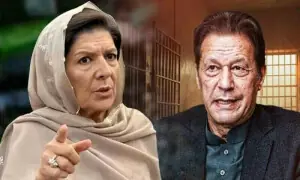

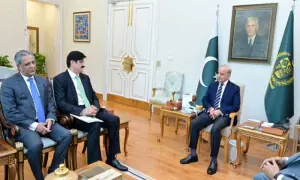

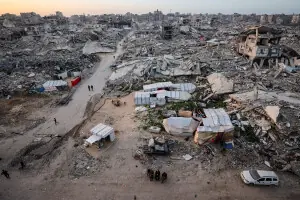

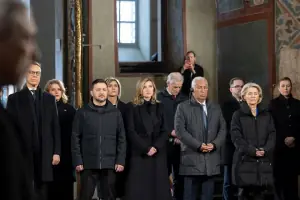
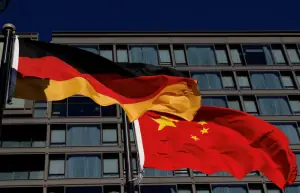
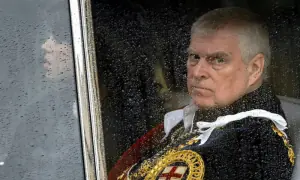
Comments are closed on this story.